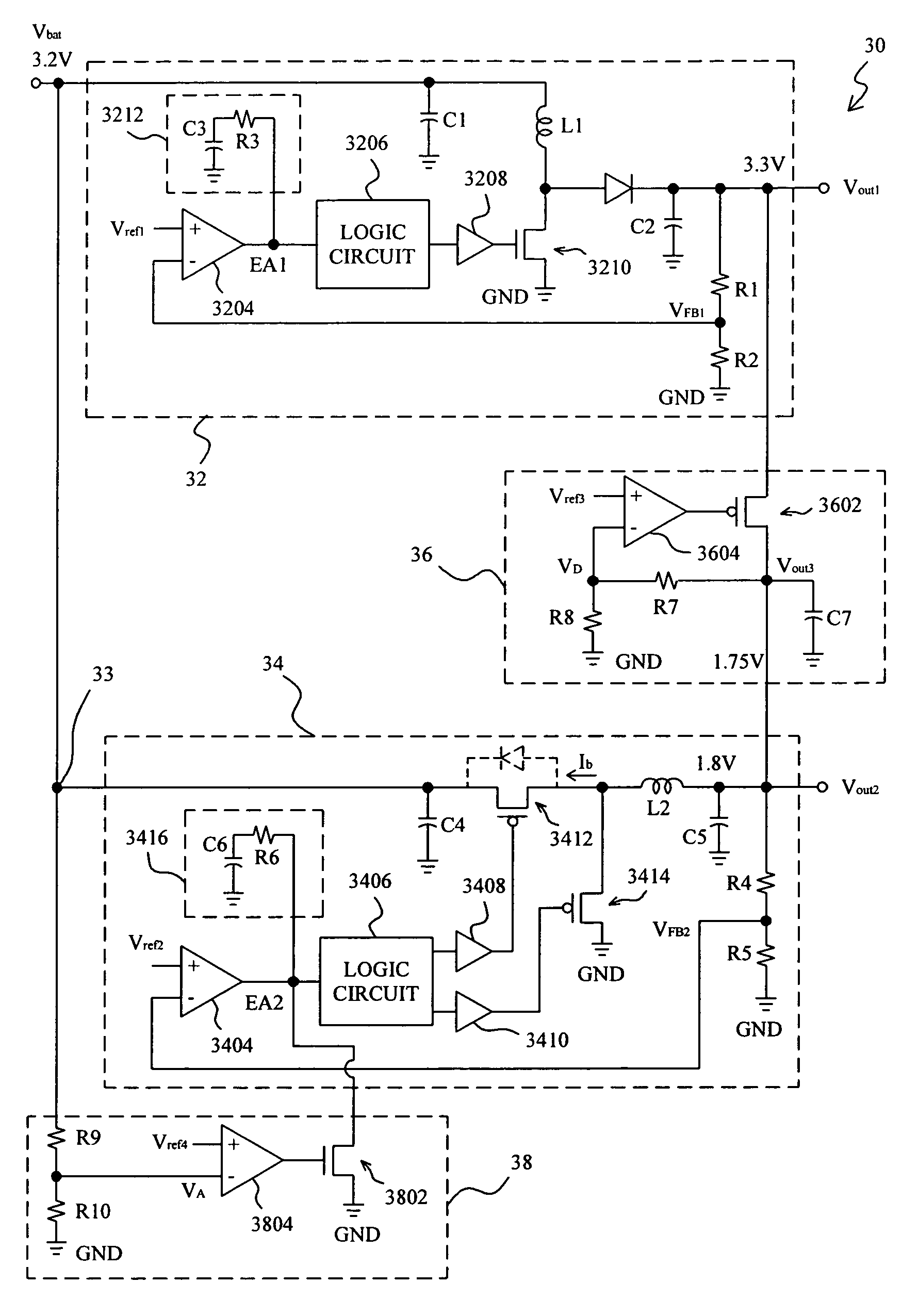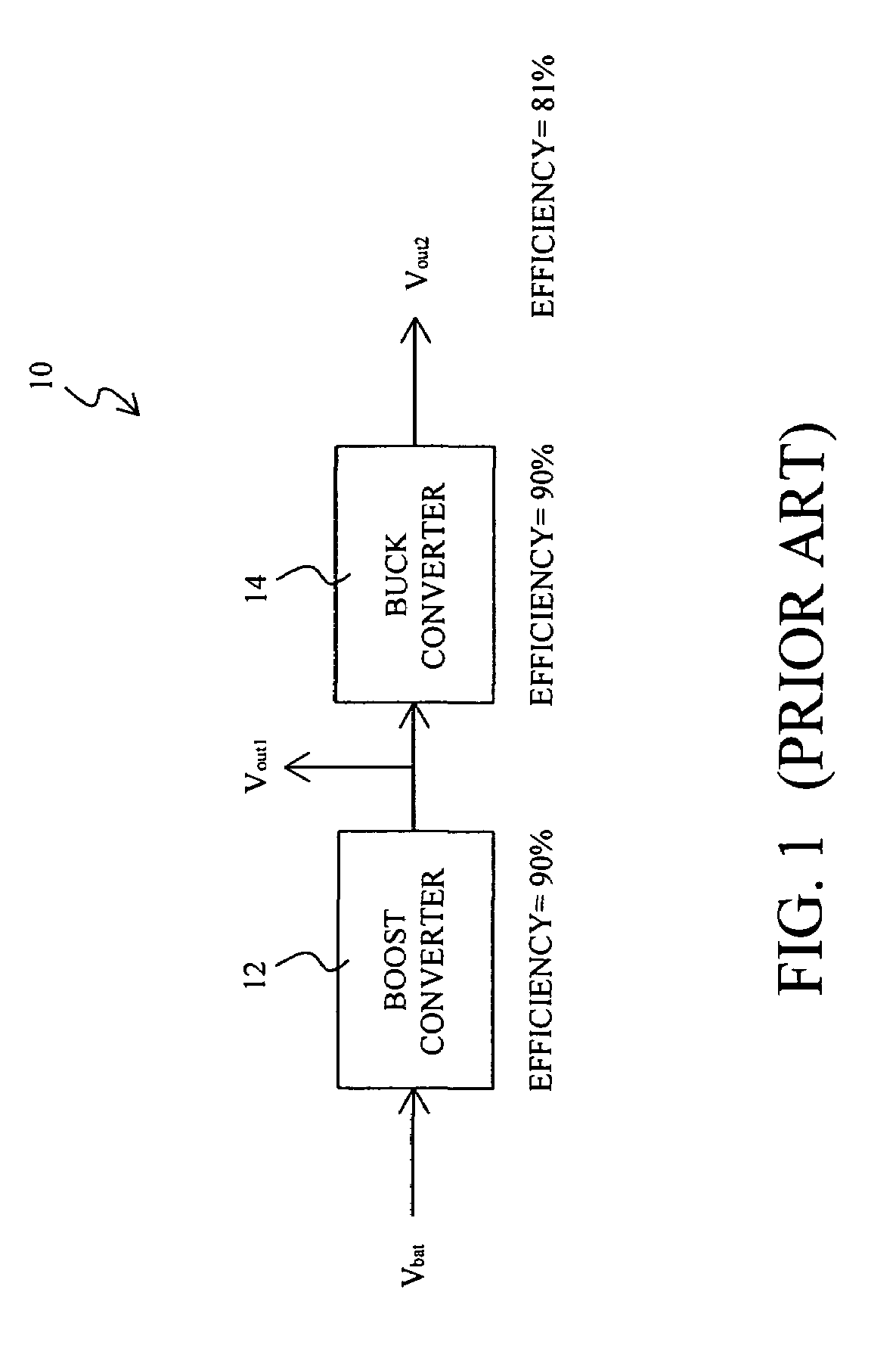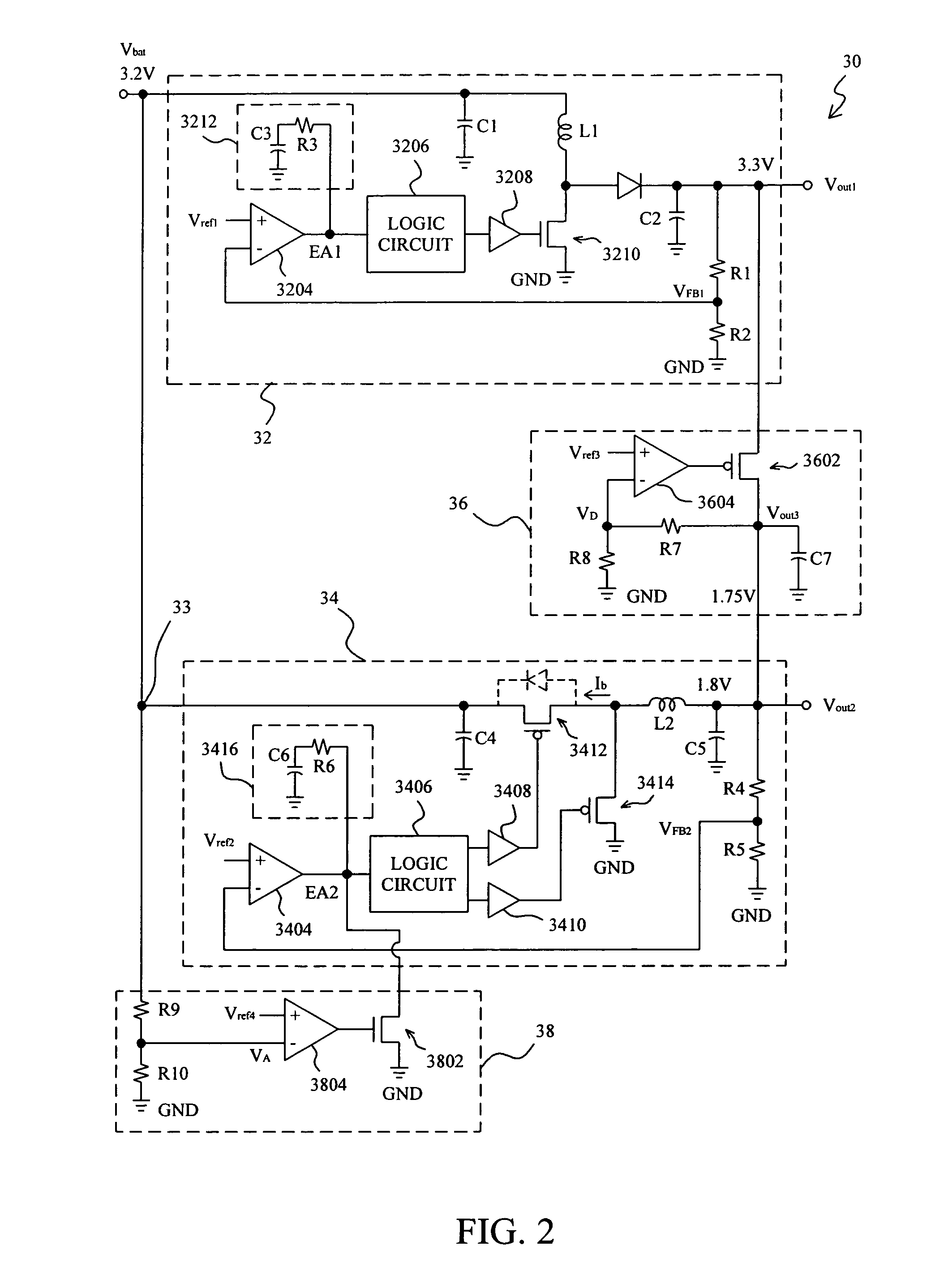High efficiency power converter
a power converter and high efficiency technology, applied in the direction of electric variable regulation, process and machine control, instruments, etc., can solve the problems of reducing the overall efficiency of the two-stage power converter, the tendency of the battery to gradually decrease the voltage, etc., and achieve the effect of improving the efficiency of power conversion and high efficiency
- Summary
- Abstract
- Description
- Claims
- Application Information
AI Technical Summary
Benefits of technology
Problems solved by technology
Method used
Image
Examples
Embodiment Construction
[0012]FIG. 2 shows a power converter 30, according to the present invention, that uses two alkaline batteries as its power source. In the power converter 30, the input voltage Vbat supplied by the two alkaline batteries is 3.2V, and is converted by a boost converter 32 to generate a first voltage of 3.3V on a first output Vout1. The level of the first voltage Vout1 is set up by selecting the parameters of the inductor L1, capacitors C1 and C2, and resistors R1 and R2 in the boost converter 32. In the boost converter 32, the resistors R1 and R2 connected in series between the first output Vout1 and ground GND serve as a voltage divider for dividing the first voltage Vout1 to generate a feedback voltage VFB1 for an error amplifier 3204 to compare with a reference voltage Vref1, so as to generate an error signal EA1 upon which a logic circuit 3206 will generate a signal to switch a transistor 3210 by a driver 3208 to regulate the first voltage Vout1 at 3.3V. The error signal EA1 may be...
PUM
 Login to View More
Login to View More Abstract
Description
Claims
Application Information
 Login to View More
Login to View More - R&D
- Intellectual Property
- Life Sciences
- Materials
- Tech Scout
- Unparalleled Data Quality
- Higher Quality Content
- 60% Fewer Hallucinations
Browse by: Latest US Patents, China's latest patents, Technical Efficacy Thesaurus, Application Domain, Technology Topic, Popular Technical Reports.
© 2025 PatSnap. All rights reserved.Legal|Privacy policy|Modern Slavery Act Transparency Statement|Sitemap|About US| Contact US: help@patsnap.com



